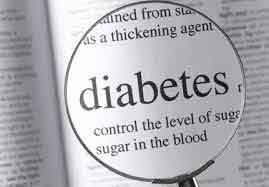- Home
- Editorial
- News
- Practice Guidelines
- Anesthesiology Guidelines
- Cancer Guidelines
- Cardiac Sciences Guidelines
- Critical Care Guidelines
- Dentistry Guidelines
- Dermatology Guidelines
- Diabetes and Endo Guidelines
- Diagnostics Guidelines
- ENT Guidelines
- Featured Practice Guidelines
- Gastroenterology Guidelines
- Geriatrics Guidelines
- Medicine Guidelines
- Nephrology Guidelines
- Neurosciences Guidelines
- Obs and Gynae Guidelines
- Ophthalmology Guidelines
- Orthopaedics Guidelines
- Paediatrics Guidelines
- Psychiatry Guidelines
- Pulmonology Guidelines
- Radiology Guidelines
- Surgery Guidelines
- Urology Guidelines
No anti-malaria drug can't be used to treat diabetes

A drug used to treat malaria does not, after all, create new insulin-producing cells, according to a new paper from researchers at the University of California, Davis. The work, published in Cell Metabolism Nov. 2, refutes a study published in Cell in January.
In the United States, around 30 million people live with diabetes, according to the Centers for Disease Control and Prevention. So any news of a potential new treatment is a big deal.
"First we had hoped that we would be able to replicate the findings, but they didn't hold up," said Mark Huising, in the Department of Neurobiology, Physiology and Behavior, UC Davis College of Biological Sciences. "People with Type 1 diabetes, they see these stories come out and they think maybe there's something on the horizon and then nothing ever follows through," Huising said.
Understanding diabetes at the cellular level
The symptoms of Type 1 and Type 2 diabetes are quite similar but the underlying causes differ. In type 1 diabetes, the body fails to create enough insulin, a hormone produced by the pancreas that regulates cellular intake of nutrients. In Type 2 diabetes, cells no longer respond efficiently to insulin.
Insulin is produced in hormone-producing regions of the pancreas called islets. Within the islets are alpha and beta cells. Beta cells are integral to creating insulin.
"That's the cell that if you lose (insulin production), you get Type 1 diabetes," said Huising. So there is always interest in any process that might generate new beta cells to replace those lost in Type 1 diabetes.
An eye-catching 'discovery'
In early 2017, in a paper published in the journal Cell, a European team reported that the antimalarial drug artemether could convert alpha cells into functional beta cells. While alpha cells converting into beta cells had been described before, this was the first time an existing drug had been reported to stimulate the process and it caused a lot of excitement in the field, Huising said.
Outfitted with the precision tools to capture alpha-to-beta cellular conversion, Huising enlisted graduate student Sharon Lee to assist with replicating the original experiment.
"We were hoping, expecting, to confirm," Huising said. "We weren't able to."
The importance of reproducibility
For her experiments, Lee used pancreatic islets derived from mice. After around four months of experiments with artemether, it was clear that the drug was not triggering alpha to beta cell conversion, as the initial Cell paper had claimed.
Lee and Huising's paper highlights the importance of reproducibility, a perennial and hotly contested topic of concern at all levels of scientific research. It also demonstrates how routine lab assignments meant to educate students can provide the foundations for published research.
"It's important to realize that our work has an impact in the real world," Huising said. "We should continuously strive to hold ourselves and our peers to a higher standard, particularly when we talk about discoveries that promise a possible cure for diabetes."
For more details click on the link: http://dx.doi.org/10.1016/j.cmet.2017.10.002

Disclaimer: This site is primarily intended for healthcare professionals. Any content/information on this website does not replace the advice of medical and/or health professionals and should not be construed as medical/diagnostic advice/endorsement or prescription. Use of this site is subject to our terms of use, privacy policy, advertisement policy. © 2020 Minerva Medical Treatment Pvt Ltd